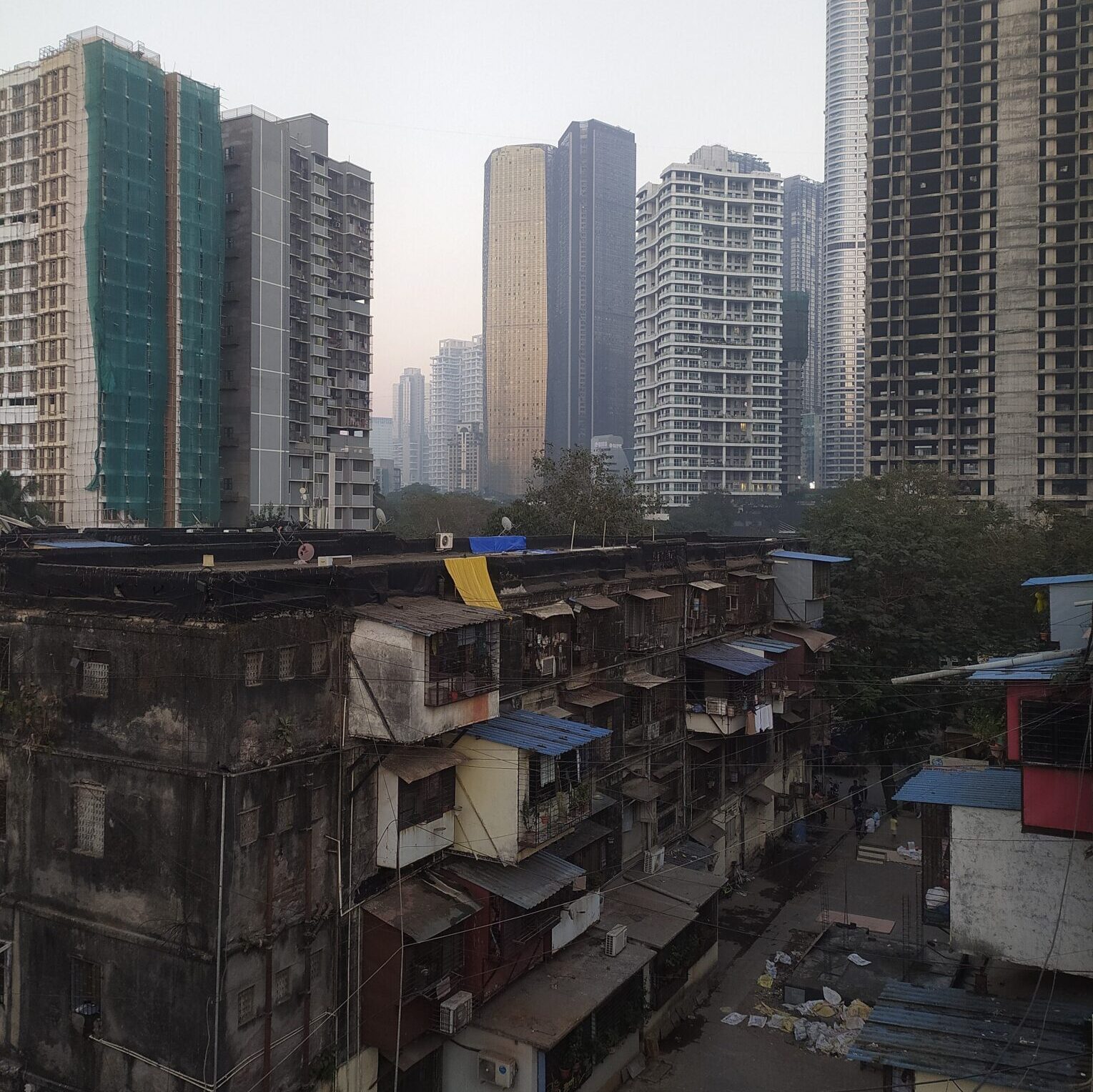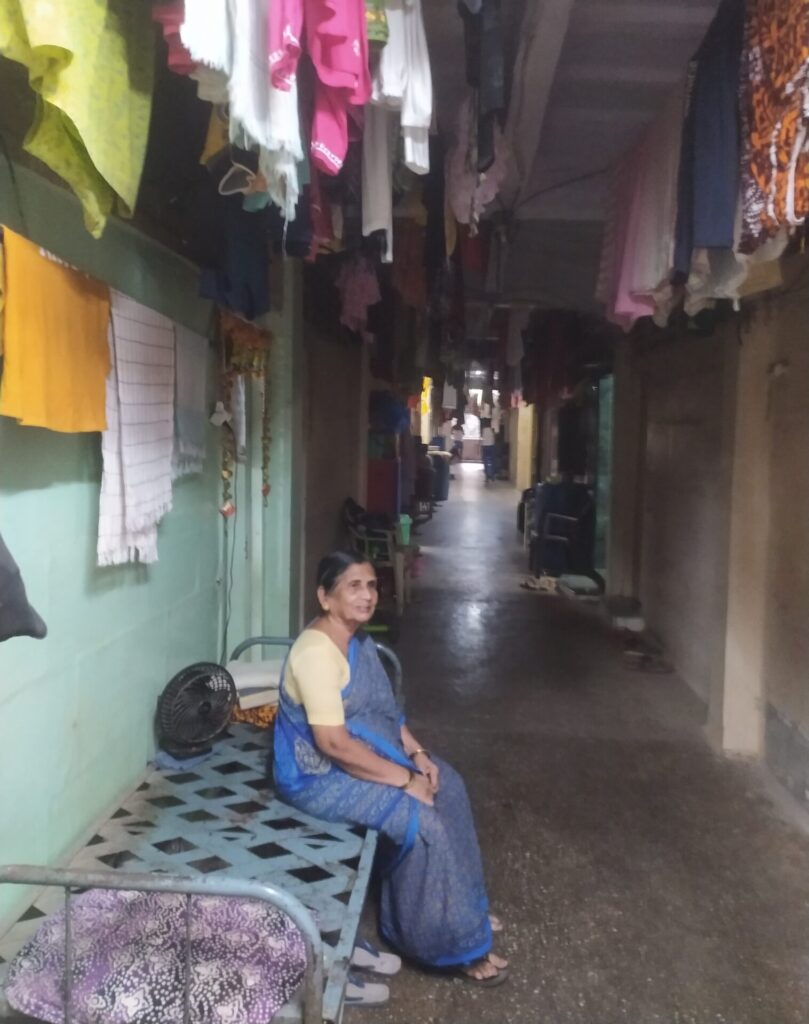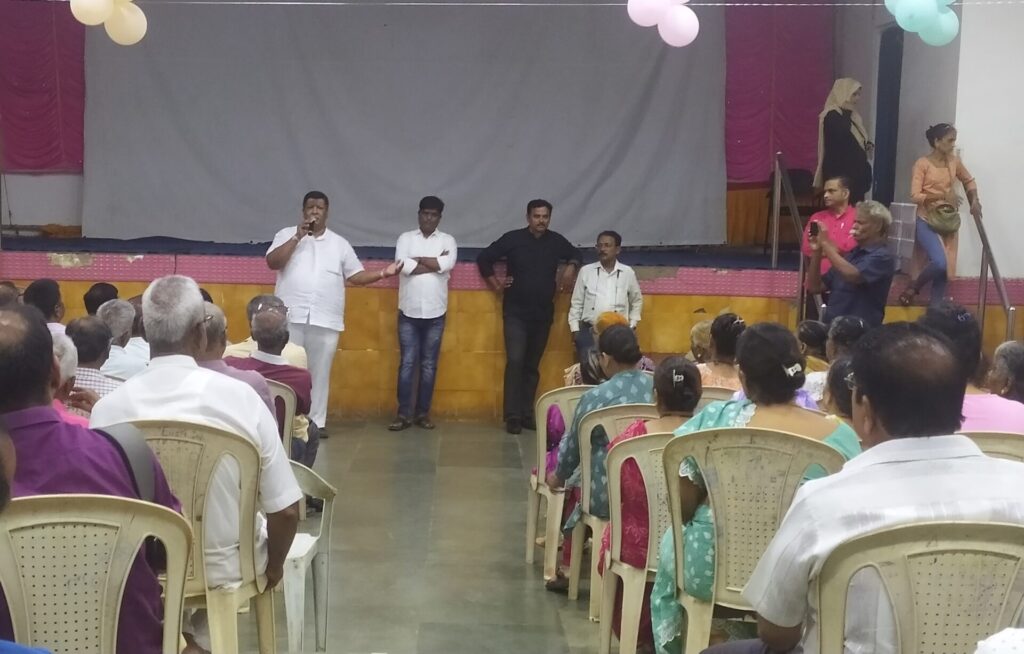The redevelopment of the historic Bombay Development Directorate (BDD) chawls in Central Mumbai has been in the news for the longest time. But it is finally underway and will be one of the biggest relocation and redevelopment exercises in the city.
The cluster of buildings has over 16,000 families in 195 chawls spread over 86.98 acres. Despite the promises and plans of much bigger and better houses, an atmosphere of anxiety and nervousness pervades among BDD residents, who are worried that things are not shaping up as promised.
Their anxiety stems from a wide range of concerns from complaints of inadequate water supply in the transit camps, the delayed documentation process, to fears that they may not be able to afford the maintenance of their bigger homes in the swanky high-rises. Very few residents have accepted rent money and moved out on their own for the interim period, because most of them are not convinced about when the houses will be ready and handed over.
So far, families from about 2466 tenements have been shifted to transit camps of the 5104 tenements as part of the Phase-I of the relocation process, while about 176 families have opted to shift out on their own by accepting rentals of Rs 25,000 as on August 3, 2023, according to Milind Borikar, vice chairman and chief officer of Mumbai board of the Maharashtra Housing and Area Development Authority (MHADA).
Those who have already shifted to transit camps, complain of shoddy quality of transit camps with inadequate water supply, irregularly working lifts and leaking walls. While those who are yet to vacate, are scared of being coerced out of their homes without proper formalities.

Forced evictions
Residents say that those who protested, were forcibly evicted in police presence.
In December 2021, Megha Parab recalls how people were forced to move out. They had to load their belongings in trucks, that were waiting on location. They were taken to their new MHADA transit camps at Bhoiwada. “The officials threw the food that was cooked and put the gas stoves in trucks,” she remembers.
Most of the people in her BDD chawl were Grade-IV employees of civic-run KEM hospital, who had been living there for generations. They had been demanding their own houses in the redeveloped buildings, similar to 2901 eligible police families, who will be getting their own houses for just Rs 15 lakh. But the demands of these civic employees were not met and instead, they were forcibly evicted and transferred to transit camps.
Other residents like Joachim D’Souza found themselves in a completely different problem. He and 61 of his neighbours were allocated transit accommodation in Bohri Badani Chawl, a redeveloped building at Currey Road. Many moved there with a few of their things. However, the neighbours barred them from shifting and even blocked their entry in the building over disputes with MHADA. The residents are now back to their BDD chawl houses, and unable to retrieve their belongings from the transit accommodation.
Read more: Is the BDD chawl redevelopment Mumbai’s chance for course correction in urban planning?
Delayed documentation
Many other tenants complain that MHADA is asking them to vacate without completing proper formalities. MHADA is handling the entire process of execution of the agreements in the BDD chawl redevelopment.
Dayanand Mohite, a resident of BDD chawls at Naigaum, approached the Bombay High Court to demand that he should not coerced to vacate without completion of paperwork. “The primary anxiety of the petitioner is that MHADA is not coming forward to execute the Permanent Alternate Accommodation Agreement (PAAA),” the HC observed and directed MHADA to execute the agreement.
The petitioner was given 15 days after signing of the agreement to vacate BDD chawl. Dayanand is unhappy with the agreement draft and plans to approach courts again.
Promise of PAAA
A Permanent Alternate Accommodation Agreement (PAAA) is a basic document between the developer and the individual member mentioning the terms and conditions of the redevelopment process. This is the basic document that provides the much-needed legal standing to the member. In case the developer fails to fulfil his commitment, it provides the basis for initiating legal action.
Similarly, in an earlier petition, the BDD Chawl Dukandar Sangh (Shopowners association of BDD chawls) filed in January 2023, by the commercial shopkeepers had similarly alleged that residents were being evicted with the help of police by MHADA without executing the PAA with summary eviction orders.
Shashikant Tendulkar, a retired postman and resident of Worli BDD says that many residents are being asked to vacate just on tenancy agreements. “People are told to vacate and submit their keys with just tenancy agreements which only mentions allocation of transit camps for three years. They are promised PAAA after two months since the document is sent to Pune for franking. To be fair, people have been getting their PAAA though there is a time lag,” says Shashikant.
Many residents are not well versed with the redevelopment rules and legalese used in the agreement. They are not even allowed to read it properly before signing, he alleged.

“People are leaving their BDD houses but they are unsure about how things will work out. The details of their new houses keep changing – the plans of redeveloped buildings have been changed from 22 floors to 40 floors, which will increase future maintenance costs. Earlier people were promised transit camps within 1.5 km periphery but found themselves relocated beyond 5 km,” says Shashikant.
Government action
Senior officer Borikar says it is not mandatory for tenants to wait for PAAA before vacating their chawl rooms.”Residents are being asked to vacate only after the final eligibility list is published by the competent authority, that is, the director of the BDD in this particular case. The facility of online registration of agreements has been made available at the site,” Borikar stated in response to a written questionnaire.
“As per the eligibility list, MHADA conducts random allotments of tenements for planned rehabilitation buildings through a lottery system, in the presence of an oversight committee and tenants,” Borikar stated.
Resident activists say that the entire transition has been smooth, except for the cases involving family disputes and those seeking rents in lieu of transit camps.
“The public works department (PWD) ministry, which owns the entire BDD chawls, has handed over the list of tenants eligible for flats to the nodal agency MHADA with the exception of disputed cases. Judicial powers are vested with the director, BDD to conduct hearings and decide disputes such as inheritance or succession or issues like multiple claimants from a family,’ says Makarand Tasgaonkar, an active member of the Akhil BDD Chawl Sarvsanghtanacha Ekatrit Sangh, an umbrella body of various BDD residents associations. “Since MHADA is a government entity, residents are issued letters, which reflect their claim to the houses and hence they need not be worried.”
Slow progress after a long wait
The leaders of the residents’ associations say that the BDD redevelopment process is a dream come true, especially after years of struggle to get it going with various authorities and across various political dispensations.
“The redevelopment project has encountered many hurdles in this journey to finally see the light of the day. The project has been much delayed and now that most of our demands, be it getting new redeveloped houses of 500 sq ft or providing interim rents of Rs 25,000 per month or zero maintenance for 12 years, have all been met, there is no reason to for people to not vacate the premises,” says Raju Waghmare, president of the Akhil BDD Chawl Sarvsanghtanacha Ekatrit Sangh.

Kiran Mane, general secretary of the Akhil BDD Chawl Bhadekaru Hakk Sarankshan Samiti says that multiple forces continue to be active against the BDD redevelopment project as it affects the housing rates of private projects around it.
The construction of the building for commercial sales has stopped inexplicably, while the work on the housing for the BDD residents is going at a slow pace, Mane admits.
Splinter residents groups
Even as this happens, groups of residents are discouraging others from vacating the premises and placing new demands. A residents group is now demanding that school and hospital be built within the redevelopment scheme and they be granted houses only in buildings with 22 floors and not 40, to reduce maintenance costs.
“Their redeveloped buildings will have zero maintenance only for 12 years after which the residents will have to take care of their building themselves.
People don’t have a clue about how much maintenance charges would be in the redeveloped buildings. They are worried that they may be unaffordable for the lower middle class residents like them. That is why, they are demanding lifelong zero maintenance.
Other basic infrastructure facilities like school and hospital should also be built. Also, parking should be given for every house to prevent fights in future,” says Santosh Dhuri, a political functionary.
Currently, one parking space is promised for every two houses.
“Aren’t they being unrealistic in their demands? They don’t realise the struggles to negotiate better deals for the residents,” says Kiran.
Impact on Mumbai
The much-hyped BDD redevelopment project will have huge repercussions on the realty and housing sector, especially of central Mumbai. It also has serious implications on Mumbai’s social culture as it signals the wipe out of the Mumbai’s chawls and with it, the quintessential middle-class Marathi manoos.
The transition of the BDD chawl residents from 160 sq ft in chawl tenements to 500 sq ft flats in skyscrapers could be smooth or tumultuous one, depending on how it is handled by the governments and promises to hold lessons for all.
The BDD Chawl redevelopment is a landmark project but raises serious legal and procedural concerns. Many residents report being asked to vacate without proper Permanent Alternate Accommodation Agreements (PAAA), which violates their rights. MHADA must ensure full transparency, timely documentation, and voluntary relocation to protect residents’ legal interests and make this redevelopment a fair success.